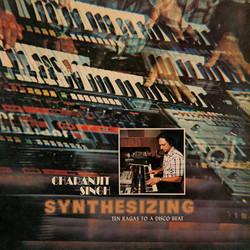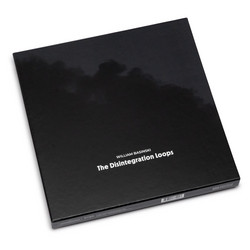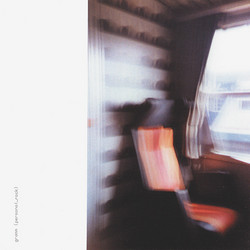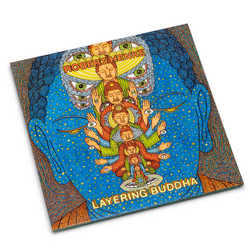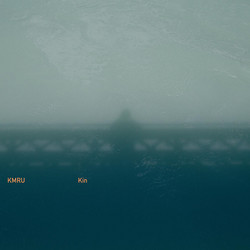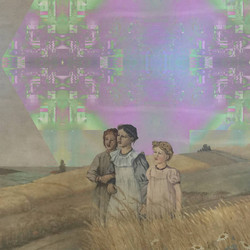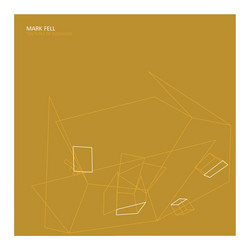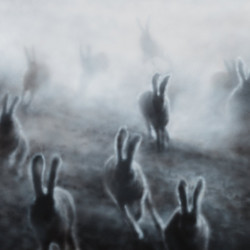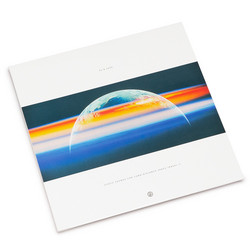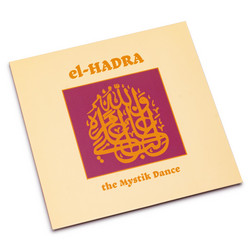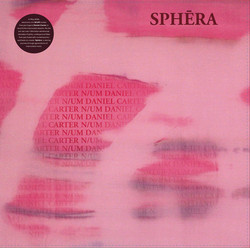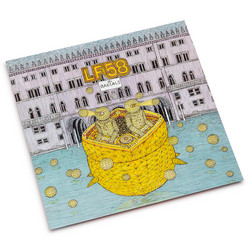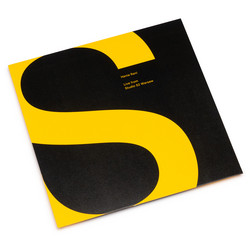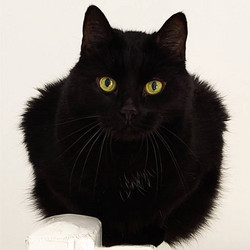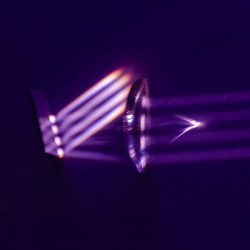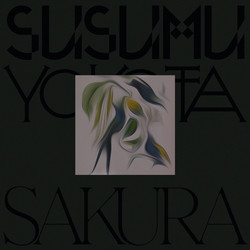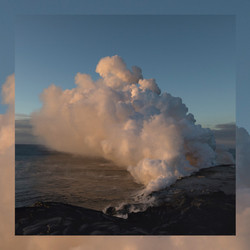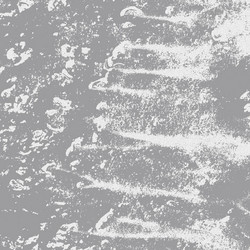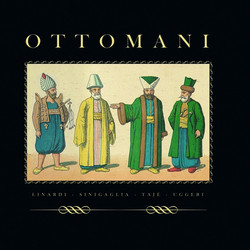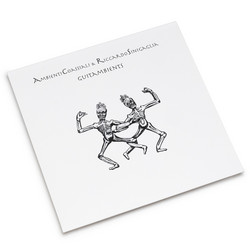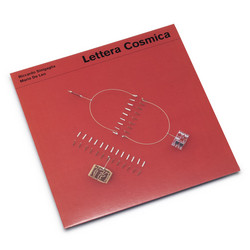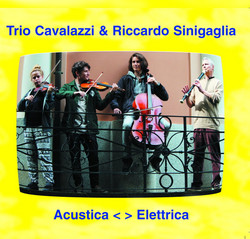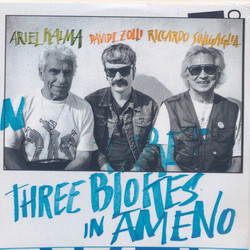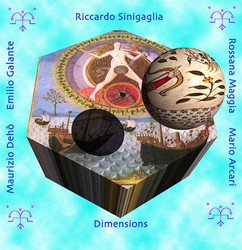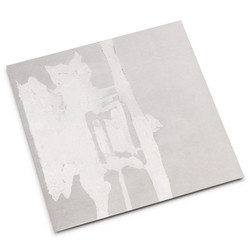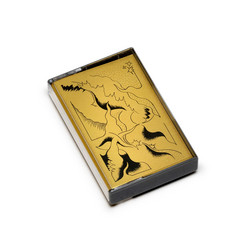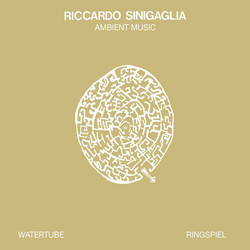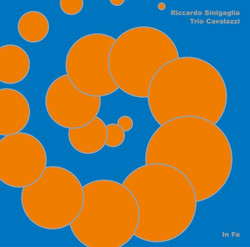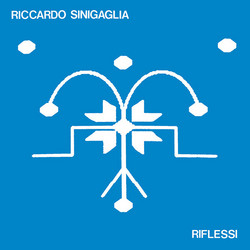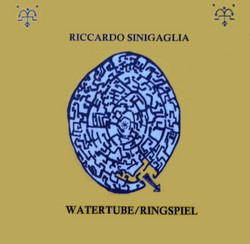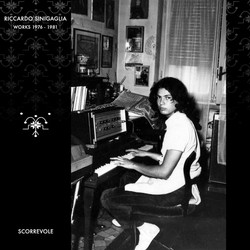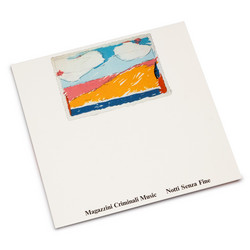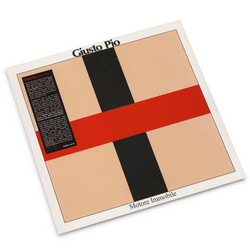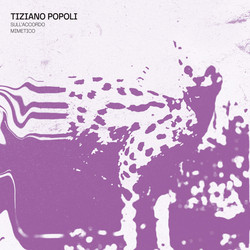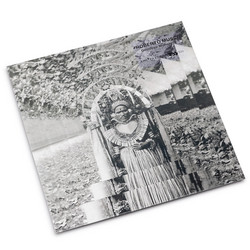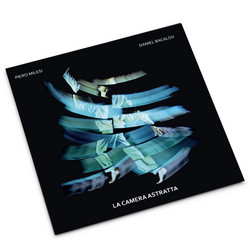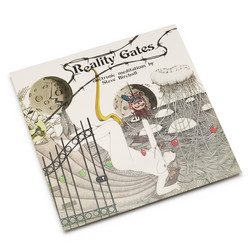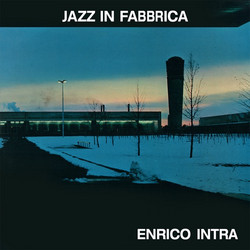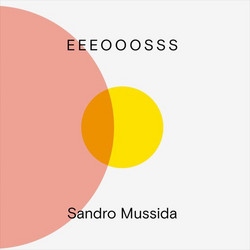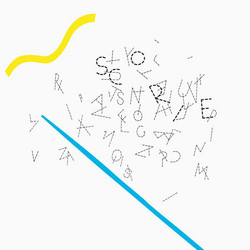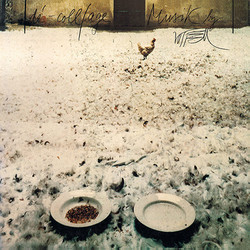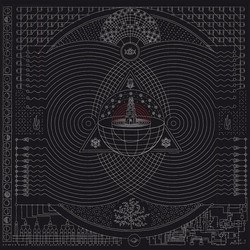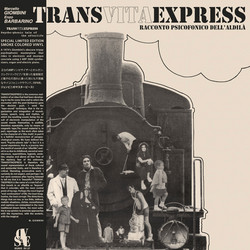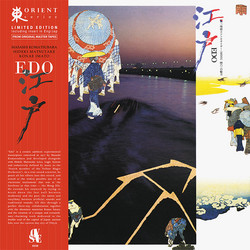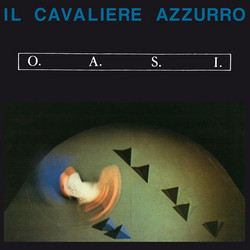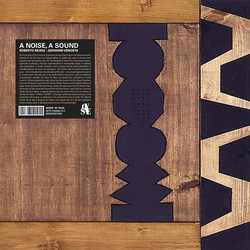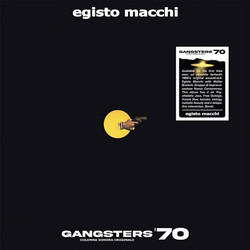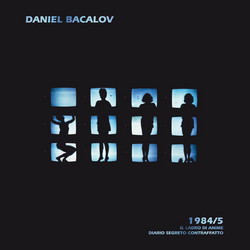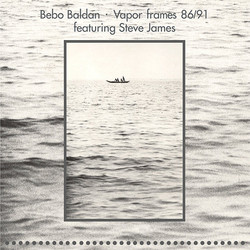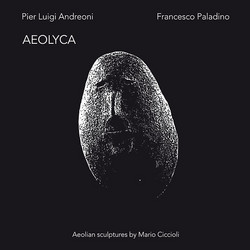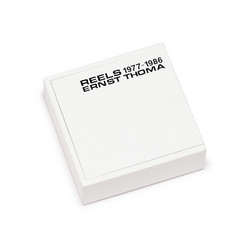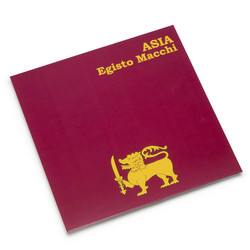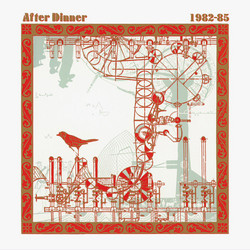Riccardo Sinigaglia
Watertube Ringspiel (Ambient Music) LP
Futuro Antico, the mesmerizing collaboration of Riccardo Sinigaglia with Walter Maioli and Gabin Dabirè evoked in its name the uncanniness of simultaneously witnessing past and future. Watertube Ringspiel (Ambient Music), Riccardo Sinigaglia’s first solo work – originally out on cassette from ADN Tapes in 1985— ultimately delivers on that idea, embodying different irreconcilable time frames not just in name.
From our vantage point, the sounds of the two performances --“Watertube” and “Ringspiel”-- appear as though they arrive to us from a past which we have great difficulty in recognizing and imagining ourselves coming from while simultaneously working as a projection of a future that is both our contemporaneity yet also surpasses it. It’s this ability that Riccardo Sinigaglia’s work has of being both rooted in its context while instantaneously capable of transcending our own that makes him one of the key figures of that explosion of beauty and creativity that defines the peculiar iteration of radical minimalism that characterized the experimental and avant-garde music scene in Italy, particularly the Milanese one with its rich countercultural scenes crossing over into the long reverberating academic legacy of the Studio di Fonologia Musicale RAI di Milano during a hyperactive decade starting in the late 1970s. An aggressively conquered freedom which resulted in works of an incredible gracefulness aimed towards a future at a moment when both grace and the future had seemingly begun their slow obliteration under the blows of powerful destructive forces.
“Watertube” starts as a synth and magnetic-tape based ambient soundscape that slowly adds what appears to be a prepared piano which eventually competes for audibility with a phrase that evokes the titular watertube, treated, looped and stacked as it phase-shifts producing a busy polyrhythm that asynchronously gurgles and bubbles, approaching but never breaking into chaos. It’s some strange version of Brian Eno’s oblique discreetness ostensibly being overwhelmed by the perversity of a Stevereichian shape-shifting pattern but the moment the former is about to be overwhelmed the composition begins a slow recession back towards the system it originated from.
“Ringspiel” is a more playful yet warped affair, a complex ecology rather than a simple economy of sounds. Opening with a whimsical melody seemingly played on a prepared toy piano this gives way to a tape loop punctuated throughout the rest of the piece by individual sounds whose origins remain uncertain. These produce scattered melodies that underscore an electronic based minimalism with a synthetic heart that nonetheless showcases a pulsating, wet, fibrous core that beats with organic life. It ends not in the opening whimsy but in fragmenting percussive shards of sounds.
While it might superficially appear deceitfully familiar and comforting and evoke recognizable pleasures this is neither your father’s ambient nor your mom’s minimalism. And it sure as hell ain’t your older brother’s lame substanceless new age noodling. There’s a dark heart to Sinigaglia’s record – listened to today we are conscious that the future “Watertube” and “Ringspiel” pointed towards never arrived and yet we are aware of nonetheless inhabiting it. That is ultimately the tragedy and the thrill of these compositions. We are told that the future’s been annulled due to a degenerative process that began precisely around the time in which this music was first recorded. And yet. As time folded in on itself and we were made to inhabit the futureless predicament of an eternal present these recordings act as relics from the last possible instance where a future could still stand to be imagined. A little sliver of opportunity. Look into it. It just might give you a peek into tomorrow. The time is out of joint.(Peter Sarram)
From our vantage point, the sounds of the two performances --“Watertube” and “Ringspiel”-- appear as though they arrive to us from a past which we have great difficulty in recognizing and imagining ourselves coming from while simultaneously working as a projection of a future that is both our contemporaneity yet also surpasses it. It’s this ability that Riccardo Sinigaglia’s work has of being both rooted in its context while instantaneously capable of transcending our own that makes him one of the key figures of that explosion of beauty and creativity that defines the peculiar iteration of radical minimalism that characterized the experimental and avant-garde music scene in Italy, particularly the Milanese one with its rich countercultural scenes crossing over into the long reverberating academic legacy of the Studio di Fonologia Musicale RAI di Milano during a hyperactive decade starting in the late 1970s. An aggressively conquered freedom which resulted in works of an incredible gracefulness aimed towards a future at a moment when both grace and the future had seemingly begun their slow obliteration under the blows of powerful destructive forces.
“Watertube” starts as a synth and magnetic-tape based ambient soundscape that slowly adds what appears to be a prepared piano which eventually competes for audibility with a phrase that evokes the titular watertube, treated, looped and stacked as it phase-shifts producing a busy polyrhythm that asynchronously gurgles and bubbles, approaching but never breaking into chaos. It’s some strange version of Brian Eno’s oblique discreetness ostensibly being overwhelmed by the perversity of a Stevereichian shape-shifting pattern but the moment the former is about to be overwhelmed the composition begins a slow recession back towards the system it originated from.
“Ringspiel” is a more playful yet warped affair, a complex ecology rather than a simple economy of sounds. Opening with a whimsical melody seemingly played on a prepared toy piano this gives way to a tape loop punctuated throughout the rest of the piece by individual sounds whose origins remain uncertain. These produce scattered melodies that underscore an electronic based minimalism with a synthetic heart that nonetheless showcases a pulsating, wet, fibrous core that beats with organic life. It ends not in the opening whimsy but in fragmenting percussive shards of sounds.
While it might superficially appear deceitfully familiar and comforting and evoke recognizable pleasures this is neither your father’s ambient nor your mom’s minimalism. And it sure as hell ain’t your older brother’s lame substanceless new age noodling. There’s a dark heart to Sinigaglia’s record – listened to today we are conscious that the future “Watertube” and “Ringspiel” pointed towards never arrived and yet we are aware of nonetheless inhabiting it. That is ultimately the tragedy and the thrill of these compositions. We are told that the future’s been annulled due to a degenerative process that began precisely around the time in which this music was first recorded. And yet. As time folded in on itself and we were made to inhabit the futureless predicament of an eternal present these recordings act as relics from the last possible instance where a future could still stand to be imagined. A little sliver of opportunity. Look into it. It just might give you a peek into tomorrow. The time is out of joint.(Peter Sarram)
Details
Cat. number: Soave022
Year: 2019
Notes:
Edition of 400 copies. Recorded in Milan Dec. 1984 in Riccardo Sinigaglia Studio
